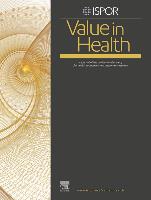
ISPOR's Commitment to Payer Engagement
Healthcare payers play a critical role globally in the allocation of healthcare resources. The importance of payers continues to grow as a result of concurrent factors including, the advent of more sophisticated medical tests and treatments, particularly for rare and complex diseases; the growth of formal healthcare decision making globally through health technology assessment (HTA); and the digitization of healthcare, which has increased the availability and pace of data about healthcare costs and outcomes and that presents new opportunities to advance analytic methods.
Since the inception of ISPOR more than 25 years ago, the Society has led major efforts to further the scientific evidence used to inform payer decisions...More...
Since the inception of ISPOR more than 25 years ago, the Society has led major efforts to further the scientific evidence used to inform payer decisions, as well as approaches to effectively engage stakeholders in these decisions. Payers are key stakeholders that regularly participate in the Society’s HTA Council, HTA Roundtables, Payer Summits, and many sessions at ISPOR conferences, summits, and other events. The topics featured at payer-focused events and sessions are identified and led by member experts who follow emerging trends and challenges in healthcare decision making. These sessions also offer ample time for discussion, allowing participants to share lessons learned, solutions, and priorities for moving forward. ISPOR’s commitment to engaging payers is also demonstrated through a number of real-world evidence initiatives that are aimed at furthering the use of real-world data in regulatory and HTA processes. In addition, ISPOR member experts have developed a widely recognized value assessment frameworks as part of broader efforts to identify the elements of value and how to measure them.
Details about these initiatives are provided below.
2023 ISPOR Payer Summit
Summary...
In May 2023, ISPOR sponsored a Payer Summit designed to discuss the impact of new legislation in Europe (the EU Health Technology Assessment (HTA) Regulation) and the US (Inflation Reduction Act and Medicare Drug Price Negotiations). The ripple effects of both of these legislations on Canada and non-EU member states was also discussed. A small section of the Payer Summit was also dedicated to the inclusion of health equity into decision making. The Summit drew more than 55 stakeholders. Attendees included representatives from public and private payers from North America and Europe, HTA bodies, pharmaceutical and medical device industry, and patient representatives.
The Summit was organized by the ISPOR HTA Council and moderated by Jens Grueger, PhD, Boston Consulting Group, Zurich, Switzerland and Mary Reed, DrPH, Kaiser Permanente Northern California Division of Research, Oakland, CA, USA.
A detailed summary of the 2023 Payer Summit can be found in a future issue of Value & Outcomes Spotlight.
2022 ISPOR Payer Summit
Summary...
In September 2022, ISPOR sponsored a Payer Summit designed to discuss novel elements of value and what does value mean to different stakeholders. The Summit drew more than 45 stakeholders who discussed what value means to different stakeholders and how as assessors they can look at value in different ways. Attendees included representatives from public and private payers from North America and Europe, HTA bodies, pharmaceutical and medical device industry, and patient representatives.
The Summit was organized by the ISPOR HTA Council and moderated by Carole Longson, PhD, Carole Longson Consultant, Manchester, England, UK.
A detailed summary of the 2022 Payer Summit can be found here.
2021 ISPOR Payer Summit
Summary...
In April 2021, ISPOR sponsored a Payer Summit designed to provide a forum to discuss performance-based managed entry agreements (MEAs). The Summit drew more than 60 stakeholders who considered the benefits and challenges of MEAs, efficient approaches to develop and scale up these types of agreements, and best practices in their development and implementation. Attendees included representatives from public and private payers from North America and Europe, HTA bodies, pharmaceutical and medical devices companies, patient groups, and academia.
The Payer Summit agenda included 2 segments with the first offering a series of short presentations by experts from a variety of backgrounds and perspectives who shared the benefits and challenges of implementing performance-based agreements
on their institutions and sectors. The presentations included:
Dr Martin Wenzl and Ms Suzanne Chapman, health policy analysts at the Organisation for Economic Co-operation and Development
(OECD) Directorate for Employment, Labour, and Social Affairs summarized the results from an OECD survey and publication on performance-based MEAs for new medicines. The OECD work included assessing the effectiveness of performance-based
MEAs in achieving their stated goals of increasing access for new therapies and identifying good practices and opportunities for improvement.
Dr Detlev Parow, head of the Department of Medicines, Therapeutic
Appliances and Remedies at DAK-Gesundheit in Germany provided an overview of the German healthcare system and explained that while Germany does not use MEAs, they do use a form of selective contracting for one-time therapies that closely
resembles the MEA process.
Dr Donna L. Sullivan, chief pharmacy officer, Washington State Prescription Drug Program shared her perspective as a payer in the United States. She highlighted some of the barriers
that US payers face when considering the use of MEAs and cited several examples, including the unmet needs for payers on the design and implementation of the MEAs and the challenges faced by smaller purchasers.
Dr Indranil Bagchi,
senior vice president and head, Global Value and Access at Novartis provided an industry perspective that highlighted the contributions pharmaceutical companies make to increase access for patients. An example outlining the current and
future landscape of cell and gene therapies was provided to illustrate the benefits of implementing-MEAs.
The second segment of the Summit consisted of breakout sessions in which attendees addressed specific topics and strategies
to capitalize on the benefits of performance-based MEAs. Participants divided into 6 breakout groups—2 groups focused on the types of products suitable for performance-based contracts, 2 groups discussed implementation barriers and
opportunities to scale up performance-based contracting, and 2 groups reviewed best practices by highlighting some successful and unsuccessful examples of performance-based MEAs.
The results of the breakout sessions were
then shared with all participants. Each breakout group also offered their recommendations on ways ISPOR could support mechanisms to improve patient outcomes and support the healthcare decision making process through approaches such as
MEAs. Suggestions included:
- Convene stakeholder groups to help identify relevant and meaningful outcomes for various conditions. The main barriers recognized during the summit were those involving the level of uncertainty and the lack of trust. The
group felt that ISPOR could help facilitate multistakeholder working groups or task forces to foster horizon scanning; develop guidelines, templates, and methodologies; and to centralize and standardize outcomes for various therapeutic
areas.
- Promote transparency among MEA’s participants by leveraging ISPOR’s member groups and councils including the HTA and Patient Councils.
- Update best practice guidance documents to reflect the current state of performance-based MEAs.
ISPOR continuously works to create guidelines and tools to help improve decision making and to bridge gaps between stakeholders. ISPOR provides many training opportunities through workshops, short courses, and webinars. Several areas were identified by the participants for consideration by the Society. ISPOR recognizes and appreciates the engagement and collaboration of all Payer Summit participants.
The Summit was organized by the ISPOR HTA Council and moderated by Mark Trusheim, Strategic Director at NEWDIGS and Visiting Scientist at MIT, Boston, MA.
A detailed summary of the Payer Summit 2021 can be found here.
Additional Payer Initiatives
Health Technology Assessment Council...
ISPOR’s Health Technology Assessment Council works to:
- Provide a platform for regional ISPOR HTA Roundtables to share issues and recommendations
- Offer guidance in the translation and use of outcomes studies as useful information in the health technology assessment and healthcare decision-making processes
- Address issues and concerns of decision makers globally
- Assist in the development and implementation of initiatives related to the use of outcomes research information by healthcare decision makers
Health Technology Assessment Roundtables...
ISPOR’s Health Technology Assessment Roundtables provide a platform to advance scientific methods; facilitate information sharing about the current state of HTA, its development, and its role in optimizing healthcare decisions; and bridge the gap between technology assessors, private and public payers, regulators, and patients to improve health globally. HTA Roundtables convene annually in Asia Pacific, Europe, Latin America, Middle East and Africa, and North America. The first HTA Roundtable was founded in North America in 2006 and was comprised of invited members of pharmacy and therapeutics (P&T) committees in the United States and Canada. The HTA Roundtables have expanded over time to the current regional formats.
The latest updates on Health Technology Assessment Roundtables can be found here.
Health Technology Assessment Central...
ISPOR’s Health Technology Assessment Central is a comprehensive repository of resources and tools to support health technology assessment (HTA) and that helps bridge the gap between health economics and outcomes research (HEOR) and other disciplines that inform HTA and healthcare decisions.
HTA Central is freely available to all and offers information and news pertaining to HTA in Asia Pacific, Europe, Latin America, Middle East and Africa, and North America. The site aims to address broad questions about how to promote an equitable, efficient, and high-quality health systems, the steps for conducting a thorough health technology assessment, and much more.
To learn more about HTA visit: Health Technology Assessment Central.
HTA-Focused Task Forces and Working Groups...
Joint HTAi - ISPOR Deliberative Processes for HTA Task Force
ISPOR HTA Council Working Group on HTA in Pluralistic Healthcare Systems: Challenges of Health Technology Assessment (HTA) In Pluralistic Healthcare Systems

